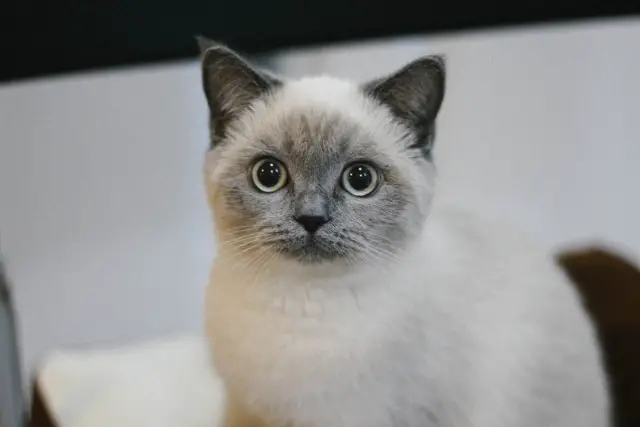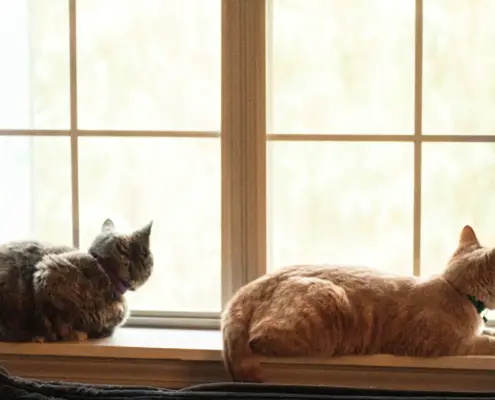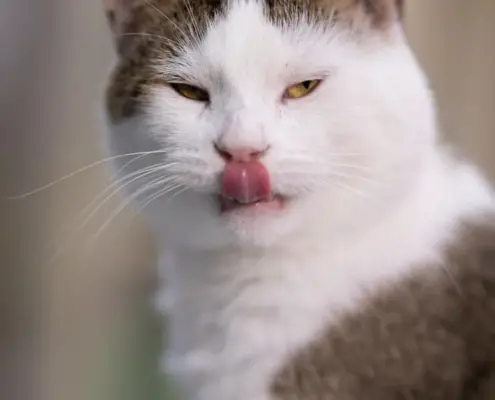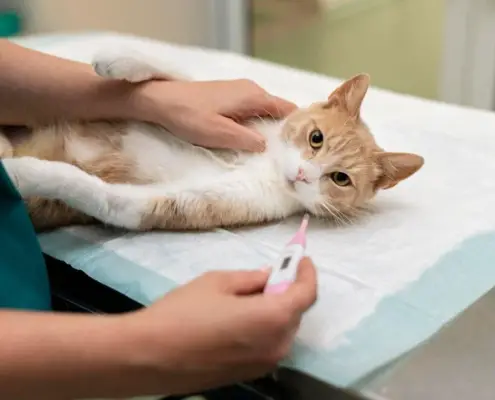
Cats are fascinating creatures with a wide range of sensory abilities that allow them to navigate and interact with the world around them. One of the most intriguing aspects of feline senses is the connection between smell and taste. This article will delve into the intricate relationship between these two senses in cats, shedding light on their unique preferences and behaviors.
Understanding the Connection Between Smell and Taste in Cats
To truly comprehend the connection between smell and taste in cats, it is important to first understand how these senses work individually. Cats have an incredibly acute sense of smell, with approximately 200 million scent receptors in their noses, compared to a mere 5 million in humans. This heightened olfactory ability allows cats to detect even the faintest of odors, making smell a crucial sense for their survival and overall well-being.
How Cats Rely on Their Sense of Smell
Cats heavily rely on their sense of smell in various aspects of their lives. For instance, when it comes to hunting, a cat’s olfactory prowess enables them to detect the scent of potential prey from a distance. Additionally, smell plays a significant role in social interactions among cats. By sniffing each other’s scents, cats can gather information about the other cat’s gender, reproductive status, and overall health. It is through the sense of smell that cats establish and maintain social hierarchies within their communities.
The Unique Taste Preferences of Cats
While cats may not possess the same number of taste buds as humans, they do have specific taste preferences that set them apart. Cats are obligate carnivores, meaning their diet primarily consists of meat. This evolutionary adaptation has resulted in a reduced ability to taste sweetness, as cats lack the taste receptors for this particular flavor. However, they are highly sensitive to the taste of amino acids found in proteins, which explains their preference for meat-based diets.
Can Cats Actually Taste Smells?
Although cats have an extraordinary sense of smell, it is important to note that they do not taste smells in the same way humans do. While humans can perceive flavors through a combination of taste and smell, cats primarily rely on their sense of smell to detect odors and their taste buds to distinguish different flavors. Therefore, while smells may enhance or alter the perception of taste in cats, they cannot actually taste smells in the same manner as humans.
The Science Behind the Connection Between Smell and Taste in Cats
The connection between smell and taste in cats can be attributed to the complex neurological pathways that exist between these two senses. When a cat smells something, the scent molecules bind to receptors in their nasal cavity, which then transmit signals to the olfactory bulb in their brain. This information is then relayed to the gustatory cortex, the area responsible for processing taste, where it interacts and influences the perception of flavors.
Common Behaviors Related to Smell and Taste in Cats
Cats exhibit various behaviors that highlight the importance of smell and taste in their lives. For example, when presented with a new food, a cat may engage in sniffing and licking behaviors to gather information about its taste and smell before deciding whether to consume it. Additionally, cats may display preferences for certain scents by rubbing against objects or marking their territory with their own scent.
Enhancing Your Cat’s Eating Experience Through Smell
Understanding the significance of smell in a cat’s eating experience can help improve their overall enjoyment of meals. One way to enhance your cat’s eating experience is by warming up their food slightly, as the heat can release more aromas, making the meal more enticing to their sensitive noses. Another method is to introduce interactive feeding toys that release small amounts of food at a time, stimulating your cat’s sense of smell and providing mental and physical enrichment.
Tips for Stimulating Your Cat’s Sense of Smell and Taste
If you want to provide your cat with additional sensory stimulation, there are several ways to do so. You can offer a variety of different scents for your cat to explore, such as cat-safe herbs like catnip or silver vine, which can provide a sensory experience beyond their regular food. Additionally, incorporating puzzle toys or treat-dispensing toys can engage your cat’s sense of smell and taste, encouraging them to problem-solve while enjoying a tasty reward.
The Fascinating World of Feline Senses
Cats possess a remarkable connection between smell and taste that plays a vital role in their survival and overall well-being. By understanding and appreciating the intricate relationship between these two senses, we can enhance our cats’ lives and provide them with a more enriching environment. Whether it’s through the aroma of their food or the scents they encounter in their surroundings, the connection between smell and taste in cats offers a fascinating glimpse into the sensory world of our feline companions.
To further explore the intriguing world of feline senses, consider incorporating scent enrichment activities and interactive feeding toys into your cat’s daily routine. By stimulating their sense of smell and taste, you can provide them with a more fulfilling and engaging life.
If you enjoyed my article, I would appreciate you sharing it with your network.

Sima Ndlebe
Sima writes for CatBuzz. He is interested in Cats, Health and Fitness, and Entrepreneurship.
Published: 1 November 2023
Related Articles
Disclaimer
The content found on CatBuzz.org is presented on an "as is" basis and is intended for general consumer information and education purposes only. Any utilization of this information is voluntary and solely at the user's own risk.
None of the articles or content should be regarded as, or used in place of, veterinary medical advice, diagnosis, or treatment. The information provided on the website is purely for educational and informational intentions and should not be considered a substitute for professional guidance from a veterinarian or other qualified expert. The articles are designed to inform consumers about veterinary healthcare and medical matters that may impact their cat's daily life. It should be noted that this website and its services do not constitute the practice of any form of veterinary medical advice, diagnosis, or treatment. CatBuzz.org explicitly disclaims any liability for any direct or indirect damages or losses that may arise from the use of or reliance on the information contained within the content.
Consumers must consult a veterinarian, veterinary specialist, or another qualified veterinary healthcare provider when seeking advice regarding their cat's health or medical conditions. It is important not to ignore, avoid, or postpone seeking medical advice from a veterinarian or other qualified veterinary healthcare provider solely based on information obtained from this website. If you believe that your cat may be experiencing a medical issue or condition, it is imperative to promptly contact a qualified veterinary healthcare professional.




